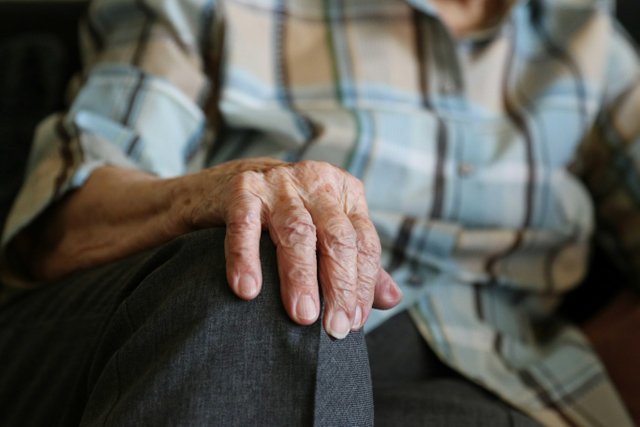Ever heard of Parkinson s disease Can coffee prevent it
Coffee is one of the most consumed beverages in the world. It is enjoyed by so many in so many forms. It is also known for the effect that it has on its consumers that so many people rely on it to get them started for the day.
This is my third post on the Effect of coffee on human health. I've previously talked about Coffee and CVDs and also, Coffee and diabetes. In this post, I'll explain what Parkinson's disease is and also the relationship between coffee consumption and the disease.
What is Parkinson's disease?
When you hear the name Muhammad Ali one thing will likely come to your mind. One of the greatest boxers of all time. Ali was famous for his success in the boxing ring as well as outside the ring. He was said to have defeated more champions than any other heavyweight champion in history.ref What you probably don't know about him is that in 1984 he publicly announced that he had Parkinson's disease.
Parkinson's disease is a disorder that worsens over time and is characterized by the degeneration of the brain's neurons. It affects the dopamine-producing neurons in the structure of the midbrain known as the Substantia nigra. This is the part of the central nervous system responsible for movement. Dopamine is known to increase when we anticipate a reward and it also plays an important role in movement. When 80 percent of these dopamine-producing neurons are lost, symptoms such as slowed movement, lack of muscle control and lack of balance begin to appear.
 Involountary shaking of the hands when at rest is a common symptom. Creative Commons CCO :pxhere
Involountary shaking of the hands when at rest is a common symptom. Creative Commons CCO :pxhereAll the symptoms that involves movement and balance are collectively called parkinsonism. Although there are other causes of parkinsonism that is not Parkinson's disease such as a reaction to a drug or caused by stroke. Parkinsonism from these causes are referred to as secondary Parkinsonism while Parkinsonism from Parkinson's disease is called primary parkinsonism.
Parkinson's disease is named after the first Doctor Who published the first detailed description of the disease. James Parkinson published the book An Essay of the Shaking Palsy in 1817.
What is the cause of Parkinson's disease?
According to Parkinson's news today, about 7 - 10 million people have Parkinson's disease and it is only second to Alzheimer's disease as an age-related neurodegeneratuve disorder. It was reported in this review by Uduak Williams et al that 67 out of 100,000 people in Nigeria (my country) has Parkinson's disease.
One of the risk factors that cause Parkinson's disease is age. The prevalence of the disease is higher among the older people than it is among the younger people. 41 out of 100,000 people on their 40s have the disease while 1,900 out of 100,000 people above 80 years old have the disease. The average age for the onset of Parkinson's disease to occur is 60 years although it has been reported among people younger than 60 years. 4 percent of Parkinson's disease patients have it before they become 50 years. The famous Muhammad Ali was 38 years when he had shown signs and Michael fox was 29 when he was diagnosed with the disease.
People want to know whether they are at risk of developing the disease if they have a relative with the disease. Genetics is a risk factor although just 10 - 25% of people with the disease have history of it in their family. Certain mutations in the gene known to cause the disease are inheritance. The probability is small, however having a family member with the disease can increase the chances of having it.
 CC0 Public Domain:pxhere
CC0 Public Domain:pxhereAnother interesting point to know is that males have a higher risk of developing Parkinson's disease about 1.5 times higher than females.
Literature review
There is a hypothesis that suggests that coffee consumption has a protective effect against Parkinson's disease. While a majority of studies report an inverse relationship between coffee consumption and Parkinson's disease, some reported that no significant relationship exists.
A prospective study by K Sääksjärvi et al examine the hypothesis to find out the relationship between coffee consumption and Parkinson's disease. The study had a population of 6710 people between the age of 50 - 79 years with a 22years of follow up. During this period, 101 incidences of Parkinson's disease occur. After adjustment was made for age, smoking, sex, etc., the relative risk for people who consume at least 10 cups of coffee daily compares to nondrinkers was 0.26. The authors supported the hypothesis that coffee consumption offers a protective effect again Parkinson's disease. They also noted that other factors may also be associated with the increase in protection.
A case-control study conducted by Harvey Checkoway et al is among the studies that found no relationship between coffee consumption and Parkinson's disease. The was conducted between 1992 - 2000 and included 210 Parkinson's disease incidence and the control had 347 participants. The authors reported no association for coffee consumption and Parkinson's disease. However, they observed a reduced risk for Parkinson's disease among current smoker and people who have a history of smoking. Although another study publish in the same year by Miguel A. Hernán MD et al, reported that coffee drinkers have a lower risk of Parkinson's disease.
G. Webster Ross, et al examined 8004 Japanese-American men whose ages are between 45 - 68 years with 30 years of follow up. During the follow-up, 102 men had Parkinson's disease. Increased coffee consumption was found to be related to a lowered risk of Parkinson's disease. After the data was adjusted for cigarette smoking, the result showed that the protective effect of Coffee was independent of smoking. The authors also suggested that caffeine in coffee was responsible for the protective effect. In an umbrella review by Robin Poole et al, they also reported that lowered risk of Parkinson's disease was associated with coffee intake after adjustment for smoking.
Reference
- Parkinson’s Disease Statistics
- http://parkinson.org/Understanding-Parkinsons/Causes-and-Statistics/
- The man | Ali
- https://en.m.wikipedia.org/wiki/Parkinson's_disease
- Robin Poole, et al (2017) Coffee consumption and health: umbrella review of meta-analyses of multiple health outcomes
- G. Webster Ross, et al (2000) Association of Coffee and Caffeine Intake With the Risk of Parkinson Disease
- Harvey Checkoway, et al (2002) Parkinson's Disease Risks Associated with Cigarette Smoking, Alcohol Consumption, and Caffeine Intake
- K Sääksjärvi et al (2008) Prospective study of coffee consumption and risk of Parkinson's disease

Hello! I find your post valuable for the wafrica community! Thanks for the great post! We encourage and support quality contents and projects from the West African region.
Do you have a suggestion, concern or want to appear as a guest author on WAfrica, join our discord server and discuss with a member of our curation team.
Don't forget to join us every Sunday by 20:30GMT for our Sunday WAFRO party on our discord channel. Thank you.
This post has been voted on by the SteemSTEM curation team and voting trail in collaboration with @curie.
If you appreciate the work we are doing then consider voting both projects for witness by selecting stem.witness and curie!
For additional information please join us on the SteemSTEM discord and to get to know the rest of the community!